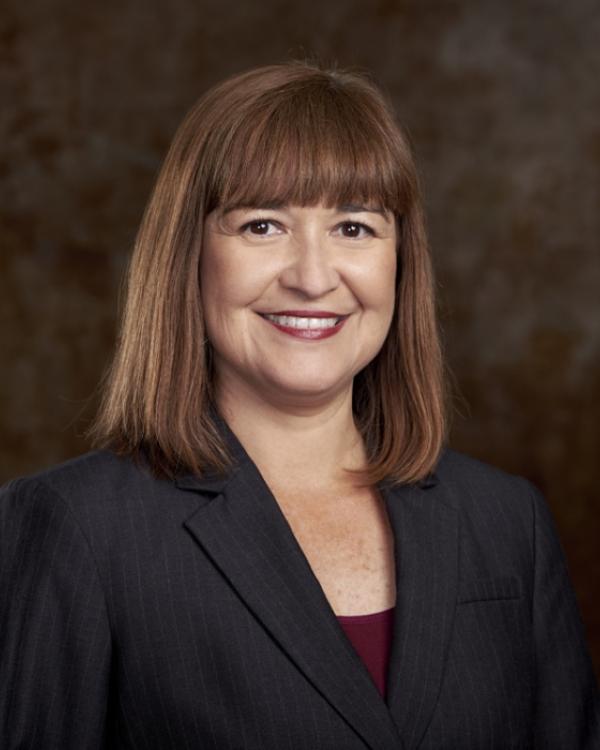
Once we heard that UCSB Graduate Division announced Dr. Nicolasa Sandoval as its 2019 commencement keynote speaker, we knew it would be a good time to catch up with this esteemed alumna. Sandoval earned her Ph.D. from the Department of Education in 2007, becoming the first Chumash to earn a doctorate. She currently serves as the Education Director of the Santa Ynez Band of Chumash Indians, and has been appointed twice by former California Governor Jerry Brown to the State Board of Education. The GGSE got to ask Dr. Sandoval questions focusing on her work in these two important positions that emphasize the crucial intersections of diversity and democracy in education.
GGSE: Tell us what your job as Education Director, Santa Ynez Band of Chumash Indians entails.
Sandoval: As Education Director for the Santa Ynez Band of Chumash Indians, I work collaboratively with elected tribal officials to guide educational policies and strategic investments to improve academic outcomes, promote self-sufficiency, and nurture the next generation of leaders. I direct academic services and programming for our tribal community members from birth through career. I directly oversee the work of 47 professionals (seven staff members and 40 independent contractors). My passion for problem-solving and inviting out the best in people sustains my energy for the work. I also partner with an outstanding team of dedicated professionals who help advance educational attainment for our tribal nation.
GGSE: What do people outside the Chumash not understand about Chumash experience when it comes to education?
Sandoval: In my roles as educator, administrator, board member, and volunteer, I work to communicate that there are multiple experiences and perspectives within communities. We certainly share many commonalities throughout different Chumash communities, but our contemporary lives on an individual basis differ greatly. We are survivors of trauma and devastating loss brought through colonization, the mission system, and residential schools. We have adapted in order to survive. These facts are commonalities that still live in us today. We are all in different stages of consciousness about our identity as Chumash people. This affects how we experience educational systems.
For example, a Chumash student may be developing their own cultural identity and connections, but a teacher or peer may ask the student a question regarding Chumash subject matter that assumes automatic knowledge of the answer. This occurred in classrooms throughout my own educational experience, from elementary through graduate school. Such assumptions continue today.
GGSE: You also have a much larger platform as part of the State Board of Education. What are your goals there?
Sandoval: My primary goal is to be of service by contributing to the dialogue and decision-making in a way that is thoughtful and informed. The level of preparation is time-consuming and involved. I am in my seventh year of service and it still feels like I am in graduate school. I am constantly reading and learning about the issues that I will be voting on. Listening is one of the most important skills I utilize in this work. Understanding multiple perspectives of stakeholders requires deep listening with fresh ears.
GGSE: What do you see as the biggest challenges for education in CA right now? And how can we go about addressing those challenges?
Sandoval: The teacher shortage is an enormous challenge that requires strategic and comprehensive approaches from various sectors. Leaders in institutions of higher education have much work to do in the recruitment and preparation of teachers. Our legislators have an important role to play as they focus on solutions for housing, student debt, poverty, and health disparities. Our workforce needs now and in the future demand that our schools have the human resources in place to prepare our students for college and career. This is just one complex and far-reaching challenge, among many.